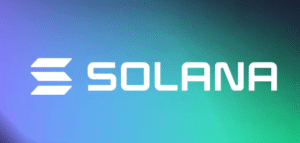$BTC $ETH #CryptoRegulation #DecentralizedTech #Blockchain #CryptoNews #JusticeDepartment #CryptoDevelopers #LegalNews #TechLaw #GoodFaithCoding
Will Building Decentralized Platforms Safely Keep You Out of Legal Trouble? Learn How Good Faith Protects Coders!
In a significant update to the blockchain community, the US Justice Department has clarified its stance on the prosecution of developers involved in creating decentralized platforms. According to recent DOJ news, coders who engage in the development of these technologies with no criminal intentions and in good faith will not face legal action. This development brings a sigh of relief across the tech and legal landscapes, highlighting a progressive understanding of blockchain technology’s innovative thrust.
Understanding DOJ’s Position on Blockchain and Good Faith
The Justice Department’s decision underscores a fundamental shift towards recognizing the intrinsic value and potential of decentralized technologies. By distinguishing between malicious intent and innovative endeavors, the DOJ supports not only tech developers but also the broader ecosystem that relies on these platforms for various applications.
What Does “Good Faith” Mean for Crypto Developers?
Operating in “good faith” means that developers should engage in transparent, honest practices while adhering to legal standards. This involves ensuring that platforms are not designed to facilitate illegal activities such as money laundering or fraud. Developers should also actively implement measures to prevent misuse of their platforms.
The Impact of DOJ’s Decision on the Crypto Market
This clarification from the DOJ could potentially lead to an increase in the development of decentralized platforms, as developers may now feel more secure about the legal implications of their work. Consequently, this can foster innovation and growth within the crypto market. For deeper insights into market trends, consider exploring the latest in cryptocurrency.
Navigating Legal Waters: Tips for Developers
1. Documentation and Transparency: Keeping thorough documentation of the development process can prove intent and adherence to legal guidelines.
2. Legal Consultation: Regular consultations with legal experts specializing in cyber law and blockchain can provide guidance and help mitigate potential legal risks.
3. Community Engagement: Actively participating in blockchain communities to stay updated on legal and regulatory changes can be beneficial.
How Can Investors React?
Investors should view this development as a positive signal for the stability and maturity of the crypto market. By supporting platforms built with integrity, investors not only contribute to a legally compliant ecosystem but also promote the longevity of their investments. For investment opportunities and strategies, check out this exclusive Binance offer.
Conclusion: A Step Forward for Tech Innovation
The DOJ’s recent directive is a pivotal moment for blockchain technology and its integration into mainstream applications. By fostering a legal environment that understands and supports technological advancements, the US is paving the way for other countries to adopt similar stances. This move not only protects developers but also catalyzes the ethical growth of decentralized technologies.
This decision marks a new chapter in how legal frameworks adapt to fast-evolving tech landscapes, signifying a mature approach to fostering innovation while ensuring compliance and security.










Comments are closed.